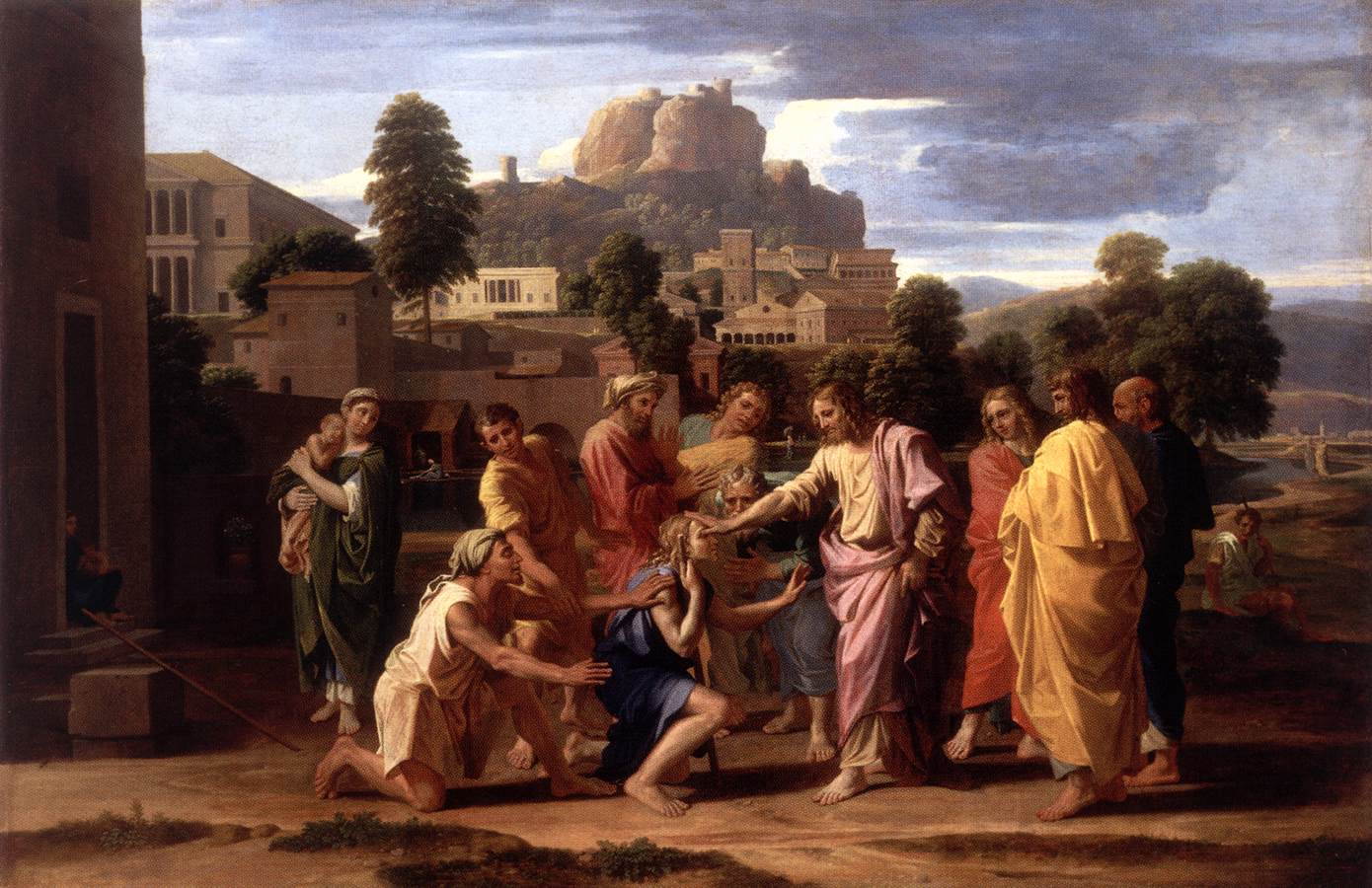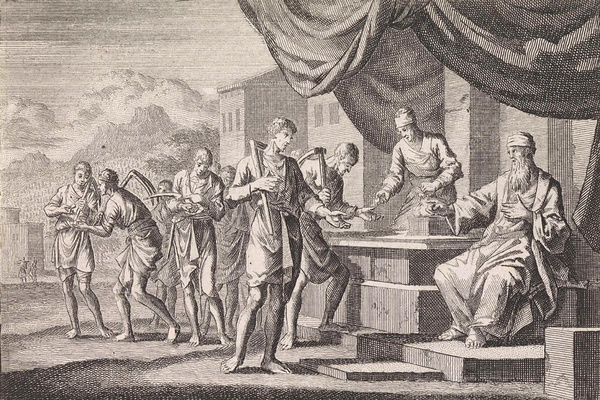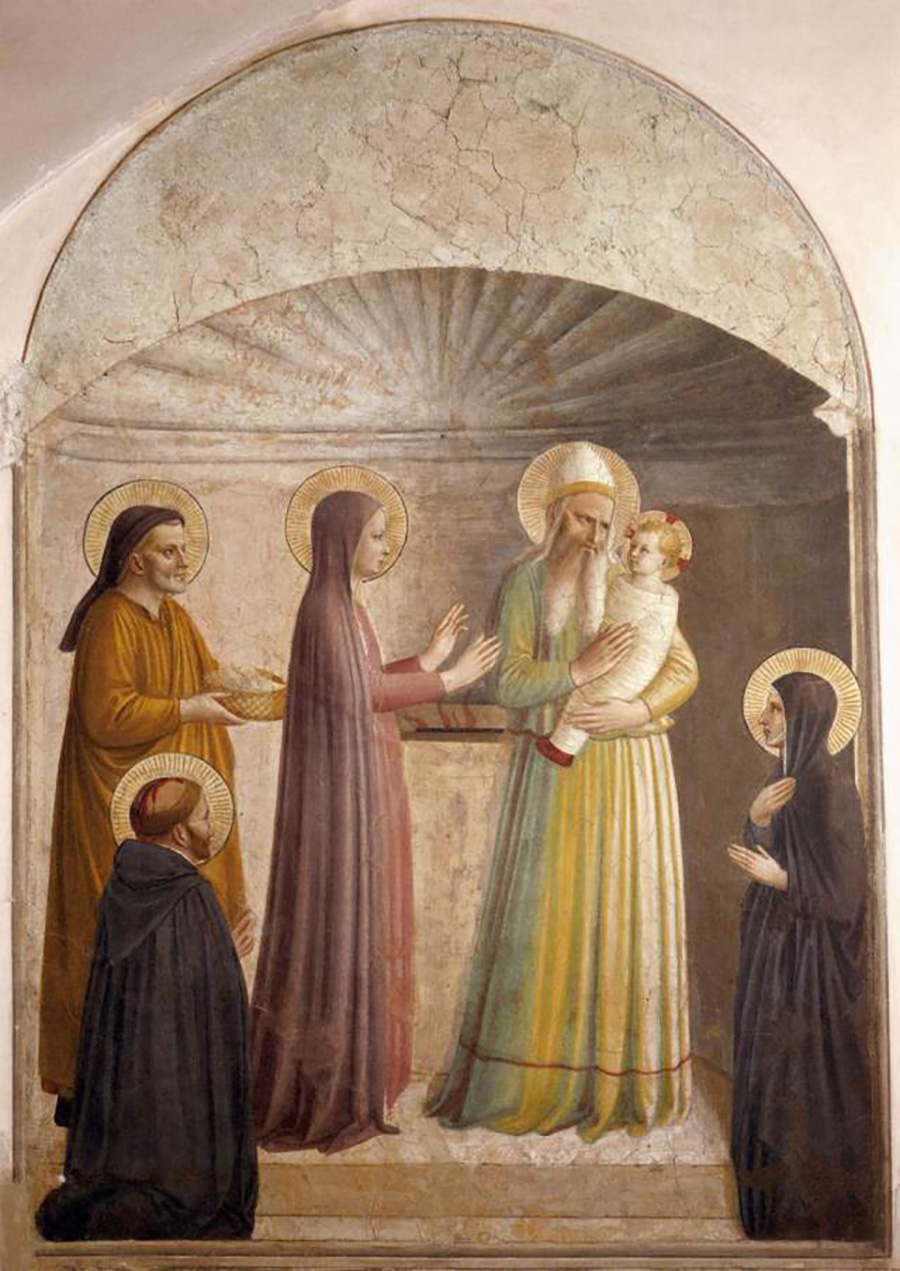All posts by Paul Zalonski
Quinquagesmina Sunday
 Quinquagesmina Sunday will be celebrated in a Latin High Mass at St. Stanislaus Church in New Haven on March 3, at 2:00 pm. The celebrant will be the Rev. Jan Pikulski.
Quinquagesmina Sunday will be celebrated in a Latin High Mass at St. Stanislaus Church in New Haven on March 3, at 2:00 pm. The celebrant will be the Rev. Jan Pikulski.
The third of the Sundays preparing us for the fast of Lent, Quinquagesima Sunday, 50 days before Easter, signals that Ash Wednesday is close at hand. The great Benedictine abbot, Dom Prosper Guéranger, speaks of Quinquagesima as a “time of Abraham” because of Abraham’s “docility and devotedness in following the call of his God.”
The Church has given us in today’s sacred Liturgy the Gospel of St. Luke in which our Lord prepares His apostles for the coming sufferings, that is, His sacred Passion in Jerusalem. The blind man represents the sinners who break their relationship with God, thus rejecting the offer of the promises of the Kingdom because of fallen man’s own selfishness in pride. We ought to understand the blind man as a model. It is said that “this man has lost the light and knows it” while “others lose the light and refuse to acknowledge it.” Some of have a keen awareness of the movements of grace and sin, while others are patently ignorant of them.
The cry of the blind man, then, is our cry, too: “Jesus, Son of David, have mercy on me!”. This prayer moved the heart of Jesus who stopped, called him, and healed him. This personal encounter prompted our Lord to ask the blind man to name the desire of his heart: “What do you want me to do for you?” the Lord asks him. “Master, let me receive my sight,” the blind man answers. “Go your way, your faith has saved you.”
Quinquagesima Sunday invites us to ask for the grace that the blind man had been given: sufficient awareness to beg for the Lord’s mercy in hearing our prayers for forgiveness of sins so that we may live in perfect freedom. Are we as Catholics prepared to be docile and devoted, like Abraham, like the blind man, before the promptings of the Holy Trinity?
Music for the service performed by the Schola Cantorum of the St. Gregory Society, will include the Gregorian chant Missa Orbis factor (Vatican edition XI), the chant proper for the Mass (Esto mihi), polyphonic motets by Guillaume Dufay and Antonio Cebrián, and organ music by Eugène Gigout and Ernest Chausson.
Latin Mass in New Haven for the coming week
Looking ahead for the Latin Mass in New Haven:
First Friday Mass: Friday, March 1 @ 8:00 a.m.
High Mass: Sunday, March 3 @ 2:00 p.m.
Ash Wednesday Mass: Wednesday, March 6 @ 5:30 p.m.
Then, on Laetare Sunday, March 31 @ 2:00 p.m. will be Solemn High Mass.
Septuagesima Sunday 2019

Septuagesima Sunday will be celebrated in a High Mass at St. Stanislaus Church, New Haven, this Sunday, 17 February, at 2:00 pm. The celebrant will be the Rev. Matthew Mauriello.
The three weeks between the end of the Christmas-Epiphanytide season of joyful celebration of the nativity and revelation of the incarnate Christ among us, and the penitential season of Lent anticipating Our Lord’s redemptive sacrifice of himself on Calvary on Good Friday, constitute a transitional period of meditation on our sinfulness and utter dependence on God. From the opening of the introit of the Septuagesima Mass, “The sorrows of death surrounded me, the sorrow of hell encompassed me …” the texts of the liturgy are filled with a dark foreboding. The Gospel presenting the parable of the laborers in the vineyard is a reminder that we are all called to work in this lifetime for God’s glory in order to receive from Him according to His mercy the wages of eternal life.
Music for the service performed by the Schola Cantorum of the St. Gregory Society, will include the Gregorian chant Missa Cunctipotens Genitor Deus (Vatican ed. IV), the chant proper for the Mass (Circumdederunt me), polyphonic motets by Josquin DesPrez and Johann Christoph Willibald von Glück, and organ music by Girolamo Frescobaldi and Claudio Merulo.
TLM for the Purification of Mary–Candlemas
 The feast of the Purification of the Blessed Virgin Mary, commonly as Candlemas, will be celebrated this Sunday, February 3, at 2:00 P.M., at St. Stanislaus Church, State and Eld Streets, New Haven. The Celebrant will be the Father Peter J. Langevin, Chancellor of the Diocese of Norwich, the Deacon will be Father Matthew Doughtery, OPraem and the Subdeacon will be Bill Riccio.
The feast of the Purification of the Blessed Virgin Mary, commonly as Candlemas, will be celebrated this Sunday, February 3, at 2:00 P.M., at St. Stanislaus Church, State and Eld Streets, New Haven. The Celebrant will be the Father Peter J. Langevin, Chancellor of the Diocese of Norwich, the Deacon will be Father Matthew Doughtery, OPraem and the Subdeacon will be Bill Riccio.
Shakespeare’s Juliet rhetorically asked “what’s in a name?” and concluded that a rose by any other name would smell just as sweet. When it comes to a liturgical feast we should also ask “what’s in a name?” The feast day on February 2, which we will observe this Sunday, the 3rd, is known by a few different names: The Purification of the Blessed Virgin Mary, The Presentation of Our Lord, The Hypapanty (Meeting), and Candlemas. Each of these names highlights a different aspect of the same event, when Mary, in obedience to Mosaic Law, goes to the Temple forty days after giving birth to make the prescribed sacrifice, and the aged Simeon and Anna recognize her son Jesus as the Savior of the world.
In terms of naming the feast, the issue is whether it is given a Christological or a Mariological emphasis. The Roman Church has always viewed February 2 as a feast of the Blessed Virgin, and the earliest calendars call it The Purification. The Byzantine Church, on the other hand, views the feast Christologically and calls it The Meeting of Our Lord, commemorating the first time Jesus meets His people publicly in the Temple. The name Candlemas neither refers to Jesus nor Mary but to the blessing of candles that occurs on this feast in the West. While the origin of the blessing of candles on this day is obscure, and possibly pagan in origin, the candle has been interpreted Christologically by St. Anselm stating that the wax represents the virginal flesh of the Christ child, the wick is His soul, and the flame His divinity. Regardless of what a particular rite may call this feast, the same mystery of salvation is commemorated and celebrated.
The solemn blessing of candles and procession through the church by the entire congregation, with the servers holding the newly blessed lit candles, followed by Solemn Mass, comprise one of the loveliest services of the Church Year. Please bring family and friends to participate in this festive celebration.
Please bring candles to bless during Mass. A table will be set up in the sanctuary.
Music for the service performed by the Schola Cantorum of the St. Gregory Society, will include the Gregorian chant Missa Marialis (Vatican ed. IX/X), the chant propers for the procession and Mass, polyphonic motets by Victoria and Byrd, and organ music by Charles Tournemire, Paul de Maleingreau, and Alexandre Guilmant.
